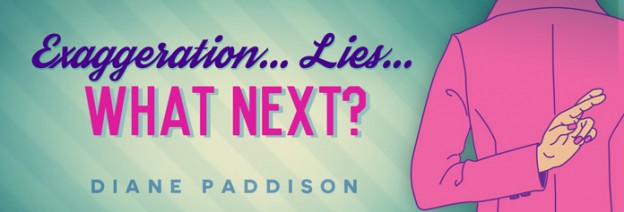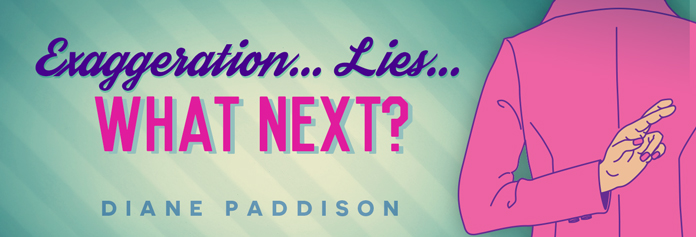
Exaggeration, Lies, What Next?
How often do you feel tempted to polish the truth a bit?
To say that you ran just a bit further, just a bit faster than you actually did? Or to claim that a work project was easy, even though you had to stay up all night to finish? How scrupulously honest is your resume? Have you ever called in sick to work when you really just needed some time off?
These types of exaggerations and embellishments are ubiquitous in our culture and maybe especially so at work. One 2012 study by Accu-Screen, Inc., ADP and the Society of Human Resource Managers found that over half of all resumes contain lies. Another study profiled in Forbes Magazine found that 93% of respondents out of forty thousand Americans admitted to lying “regularly and habitually in the workplace.”
It’s tempting to excuse “little lies” by saying that they are just exaggerations, but the fact that a lie may be based in truth doesn’t make it less of a lie. It only makes it easier to tell.
But there are good reasons to guard against all kinds of lies.
 It’s wrong. “Do not lie to one another, seeing that you have put off the old self with its practices and have put on the new self, which is being renewed in knowledge after the image of its creator.” (In Colossians, 3:9-10). This great Bible study by Renner Ministries makes it clear that in its original greek, Paul’s admonition to the church extended to anyone who someone who misrepresents who he is by what he does, by what he says, or by the fact or truth he purports to be true.
It’s wrong. “Do not lie to one another, seeing that you have put off the old self with its practices and have put on the new self, which is being renewed in knowledge after the image of its creator.” (In Colossians, 3:9-10). This great Bible study by Renner Ministries makes it clear that in its original greek, Paul’s admonition to the church extended to anyone who someone who misrepresents who he is by what he does, by what he says, or by the fact or truth he purports to be true.
We are representatives of Christ in the work place, and even the smallest of lies can do irreparable damage. None of us is perfect, and we all make mistakes, but if the people around you see you casually telling lie after lie, you can bet they’ll remember that the next time you mention something about Church.
It’s habit-forming. Have you ever seen a toddler lie? Experimenting with lies is a natural part of human development, as pretty much any parent can tell you. But when kids first start to lie, they’re laughably terrible at it. They fidget, roll their eyes, forget their story, and turn red. With a little practice, however, they get better.
Lying is a learned behavior: the more you practice it, the better you’ll be, and the easier lies will come to you. Many people lie without thinking about it at all.
Small reward, huge risk. Most of the small lies people tell are lies of expedience. They’re meant to solve or avoid some perceived problem, like avoiding what you see as a pointless meeting by claiming that your car ran out of gas. But most of the problems that such lies are meant to solve are nothing compared to the damage that they can do. A year from now, your co-workers or clients probably won’t remember whether or not you attended a particular meeting, but they will remember if you get caught in a lie trying to avoid it.
co-workers or clients probably won’t remember whether or not you attended a particular meeting, but they will remember if you get caught in a lie trying to avoid it.
Almost nothing is more damaging to your professional reputation than becoming known as dishonest. Because even the most innocuous of lies leads people to question whether you can be trusted when it comes to bigger issues. And there will be bigger issues.
A lie may take care of the present, but it has no future. -Author Unknown
One experience sticks out in my mind from when I was working at Trammell Crow Company and was overseeing TCC’s institutional client business. One of our biggest national clients asked us to help them hide money from certain investors, promising that we could split the benefits. The manager of the client account was afraid that we would lose their business if we didn’t agree. The loss of such an account would have been devastating, but I knew that it was a risk we would have to take in order to protect our reputation. I had more than a few butterflies in my stomach when I went to fill in the CEO, who backed my decision completely. In the end, we didn’t lose our client, but we very well might have. And it would have been worth it.
Cultivating a reputation for honesty isn’t always easy, but it can pay huge dividends. Credibility is hard to build, easy to destroy, and infinitely valuable. The next time you’re tempted to tell a “little white lie” to your boss, or feel the need to exaggerate the ease of a project to co-workers to gain a few brownie points, remember the three points I mentioned above and take the time to decide if risking your reputation is really worth the minor reward in the end.
—–
Want “Mondays with Diane” sent directly to your inbox every week? Click the button below to sign up!
